
Where are all the women within tourism?
Today’s blog post is long overdue, and yet, I ended up almost not writing it at all. It regards the theme of female security, a theme that has followed me regardless of whether I’m traveling or at home in Sweden. I hesitated for many months writing this, afraid to not get the many nuances across, to come off as a victim, or to perpetuate the already existing racist narratives and prejudices about the countries I travel. However, this is a defining part of my experience as a solo traveling female, not writing about it would also essentially be negating a central aspect of my life as a woman. For the longest time, I used to normalize a lot of what I now see are skewed power dynamics. Sharing my experience will perhaps help somebody else in their process.
Ever since I got into Mozambique at the beginning of last year I’ve been wondering, where are all the women? I was in a new country, wanting to meet people but whenever I went out, it felt like 99% of the people I met were men. Not only that it was mostly men who approached me, it felt like it was generally solely men out and about in Maputo’s night life. On the one hand, it is not uncommon that women are less present in public spaces at night. Security reasons, gender norms, economic limitations of who earns and spends the funds of the home… But in Mozambique, my impression was that the skewed gender division of space was applicable in most areas in society, not just the nightlife. The musicians and the guides, the space owners and the participants in different spaces were almost all male. Odd, considering that statistically there are more women in Mozambique than men. When I eventually got to Tofo it was no different, all men.
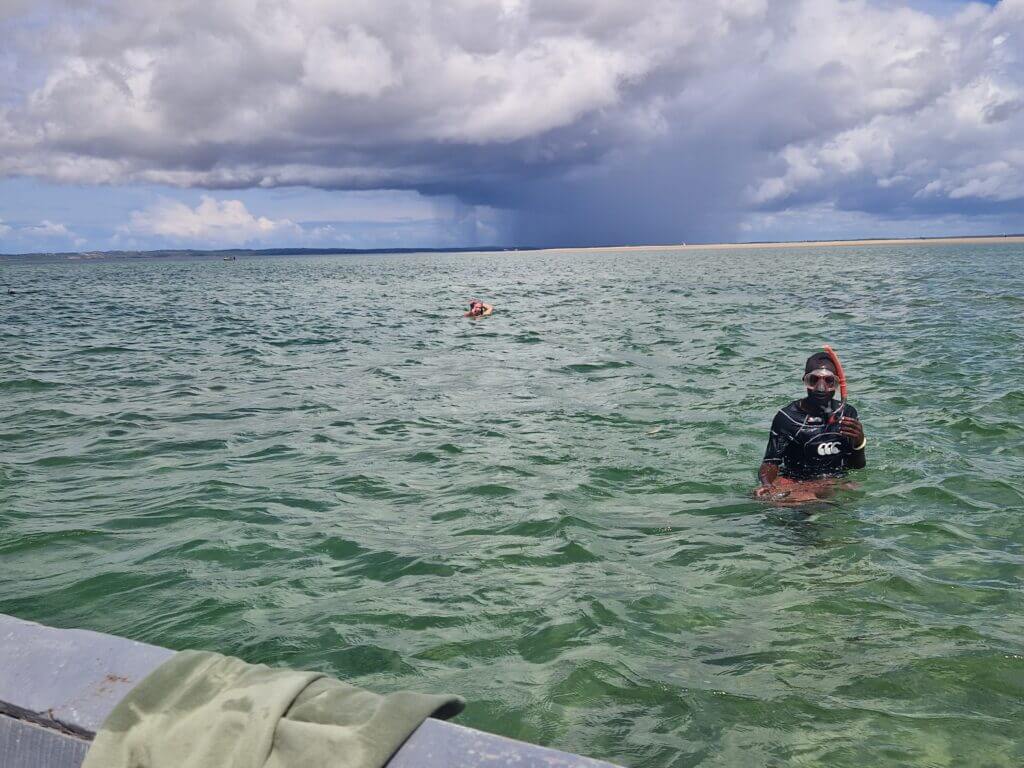
Experiencing the patriarchy as a solo traveling female
I have previously shared little bits and pieces about the security aspect of being a solo female traveler. Most recently I wrote a small piece about how the amount and type of male attention I got in Tofo was overwhelming. The underlying presence of alcohol and violence created an uncertainty which felt difficult to navigate as a solo traveler and as a woman.
Some hard, yet beautiful conversations were had with a few of the men and eventually we found our way of coexisting. What I did not see coming was how the mere fact that I, an unmarried woman traveling alone, would be perceived and received negatively simply because I was just that – a solo traveling female. In Tofo, it got to the extent that I actually ended up adapting my behavior and eventually changing my accommodation.
I was a solo traveling female, living on my own amongst a group of male musicians and tourism staff in Tofo. Living there, I always felt safe, respected and included. We went to dinners, cooked together, chilled during the days and partied during the nights. After my first week in Tofo, rumours about me being a whore got back to me. It hit me like a brick in the stomach to tell you the truth. Not solely because it is such a demeaning terminology used to put women ‘in their place’ but because the people telling these stories were people I saw every day.
Mostly though, it made me feel scared and small. Getting the reputation of a whore in a patriarchy, anywhere in the world, is definitely effective in making you feel small. I find it a scary place to be in when my reputation crashes and burns. It’s not just words, it translates into how people treat me, how safe I feel, how respected I get. I wish I could say something empowering on how to navigate these dynamics, but this is something I am still processing, strategies I’d prefer to be oblivious of.
In retrospect I am not too surprised at what transpired those weeks in Tofo. I’ve seen it and lived it time and time again growing up. When I lived in Nicaragua as a seven-year-old I was called into the principal’s office for playing football with the boys, it was not considered appropriate. I was 12 years old the first time I was called a whore, it was a male classmate in Sweden who wanted to put me in my place. When I was 15 years old, the girl in my class who rather hung out with the guys, quickly got turned into the main subject of everyone’s name calling and trash talking.
I’d love to say that it got better once we were older but that was never the case. It is the usual story; guys get crowned kings for how many girls they bed and girls learn how to balance the whore-Madonna complex where you both needed the men’s desire to be ‘valued’ but also need to watch out to not get the tramp stamp. Harsh, I know.
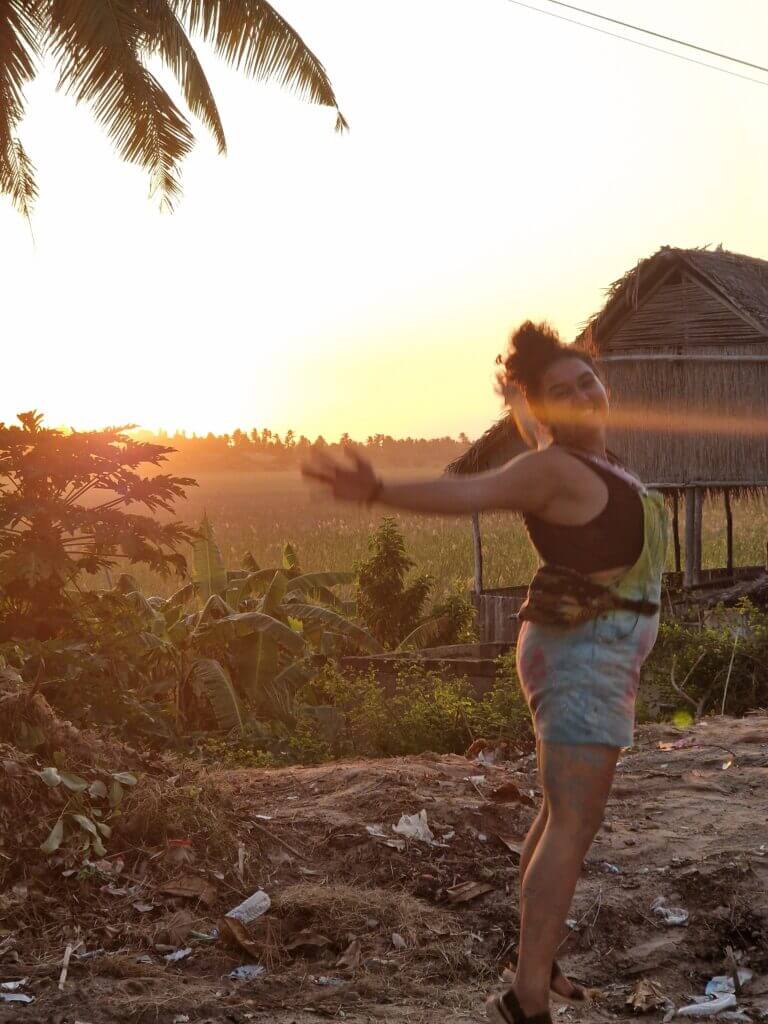
The duality of gendered dynamics when solo travelling
As a solo traveler, or as somebody doing life outside of their own country, dependency is what is the hardest – that you are so reliant on the people around you. I think our experiences are largely shaped by the people and norms that surround us and when I was in Mozambique, that experience largely consisted of men but not solely in the negative way described above. No. I can safely say that on a personal level it has been both eye opening and heartwarming.
Back home, my close friend group consists of 99% women but through the process of slow traveling Mozambique for eight months, my closest friends here consist of 99% men. Beautiful friendships with souls that I built relationships with probably simply and just because there were no other women in my proximity at the time. Reflecting on this makes me realise to what extent my own behavior is also saturated with gendered notions.
Without sounding too crass, another aspect of traveling as a solo female is that I use my perception of the gender dynamics to gain more access to places and times I otherwise wouldn’t feel safe or comfortable visiting. Through the inclusion and company of my male friends and acquaintances, I get access to spaces and social circles at times that I wouldn’t access on my own, like going out at night in a new place or walking into areas that aren’t tourist friendly.
On the other hand, it doesn’t come for free. The mere feeling alone of existing at the mercy of a stranger you met is a price. But what would happen if one of those male acquaintances who chaperone me around at night, what if he suddenly feels he doesn’t want to do it anymore? Or if he decides he wants something in exchange? Imagine getting ditched and stranded somewhere in the middle of the night in a strange city just because you don’t want to sleep with the guy. Nightmare.
These dynamics affect what and who I choose to write about on the blog. Slow traveling helps get a fuller picture of the people and enterprises. This is one of the reasons I often publish a post a few months after I’ve experienced something, both good as bad. I want this platform to be a safe space for all of us solo travelers, especially from a woman’s perspective.
It was a very cold shower to receive a message a few months ago from a perfect stranger, a woman I had never met before, warning me about one of the men I was making content for. My name had showed up in the credits of his video. At first, I didn’t want to believe it, he was not just a collaborator but a friend I relied on. As I started digging for more information online, more accusations came up. This guy was a scammer. A scammer specifically targeting young, tourist women. Disaster! In the end, he ended up scamming money from me as well. The finesse of a scammer is that I didn’t realise it till months afterwards.
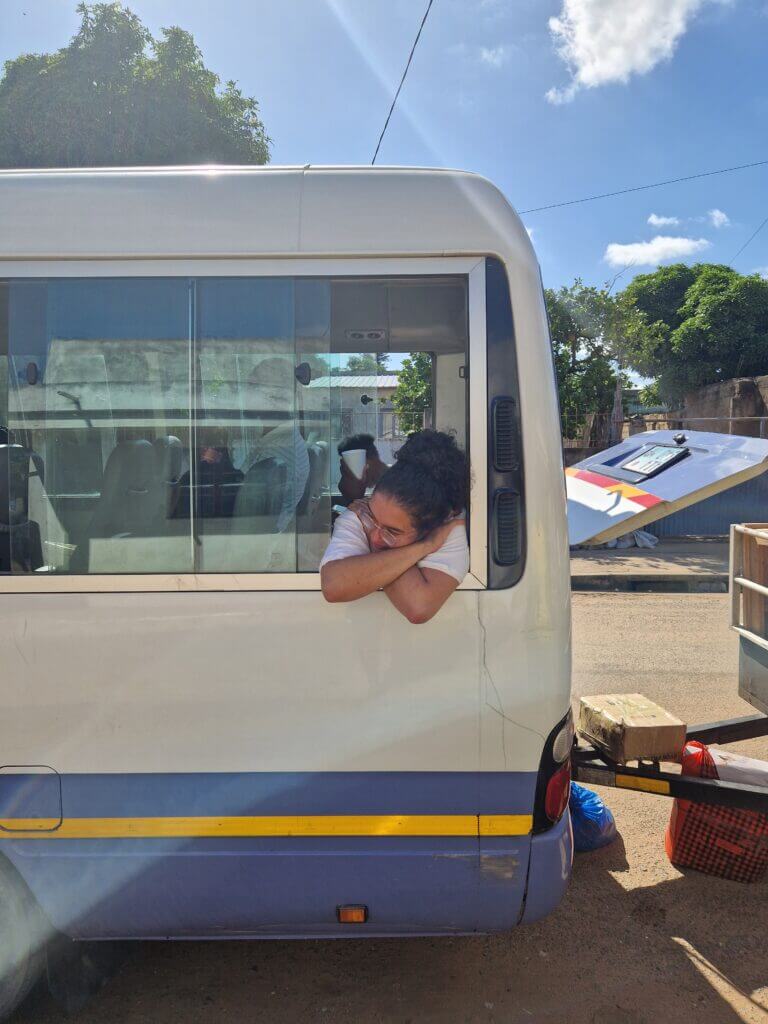
How Women Impact my Travel Safety and Experience
The rumours that were spread about me in Tofo in some ways felt surreal, like something from a movie, but the consequences were very real. It changed how I perceived and navigated Tofo. The silver lining of that whole ordeal was that I got to move into a local woman’s house. We had met only a few weeks earlier when I was out and about partying in Tofo.
She was an entrepreneur, a single mom and a Mozambican. If I thought that I had to balance on a knife to navigate the Mozambican patriarchy, it was vastly different from the machete she had to walk on daily as a Mozambican woman. It opened my eyes to the double standards and differences between how foreign women are viewed and treated in comparison to the local women.
With her by my side I also started to see different ways to handle the patriarchy in action. She reminded me that I don’t owe anybody niceness. She asserted her space and her innate right to it like it was nobody’s business, letting the backtalk fuel her motivation to build a life according to her. She is one of the strongest women I know and a huge inspiration. As weird as it may sound, I am grateful to how everything played out in Tofo, even the nasty. It was hurtful, yes. But the experience somehow shook me out of the role I thought I had to play as a visitor from a rich, European country.
When I left Tofo, I went straight to Bilene, another sleepy seaside town in Mozambique, to meet my friend Inga. She is also a solo traveler from Sweden, sort of. At this point we had only known each other for three months tops but she had already become an integral part of my Mozambican experience. I poured my heart out to her, telling her all about the rumours, the beach boys and the scammer. We end up laughing at the whole situation, all my stumbles and the mess it all made.
It is nice to talk to somebody who doesn’t need me to explain the clashes that happens because I am foreign, that understands the culture and gender norms I grew up with. I feel seen and safe. It makes me wonder how the thing in Tofo would have played out if there were more women in the tourism sector. Not just as cleaners and cooks, but as guides, owners, bartenders, participants and party goers. How would it have transpired if more women were part of the public spaces and had a bigger voice?
What I do know is that for me, more women in public spaces makes me feel safe. That is usually how I judge when it is time for me to leave a party or a club when I’m out in new country. I leave when the local women start to leave.
When I’m back in Maputo there is a big concert in Mafalala, a neighbourhood on the outskirts of town. Inga and I want to dance but the crowd mostly consists of young teenagers pushing through the crowds from one corner to the other. Each time we start dancing a ring of male spectators form around us, it makes me uncomfortable and uneasy.
Halfway through the night, we find ourselves in the middle of the crowd again. We are surrounded by what appears to be the grannies of the neighbourhood, they have formed a circle and together we dance our butts off. The women laugh, cheer and sing when I dance in the middle, from the corner of my eye I see how one of the grannies grabs a young man by the ear and pushes him out of our circle when he tries to dance with us. There is zero tolerance from the grannies, this is their space, and they have no time for the boys and men surrounding us. They are here to dance and dance we did.
I catch Inga’s eye across the sea of hijabs and shaking arms surrounding us. The joy I see in her eyes I know must mirror my own. Liberty. The freedom that comes from feeling safe and doing what you love. The memory gives me goose bumps. Women! I live for you!
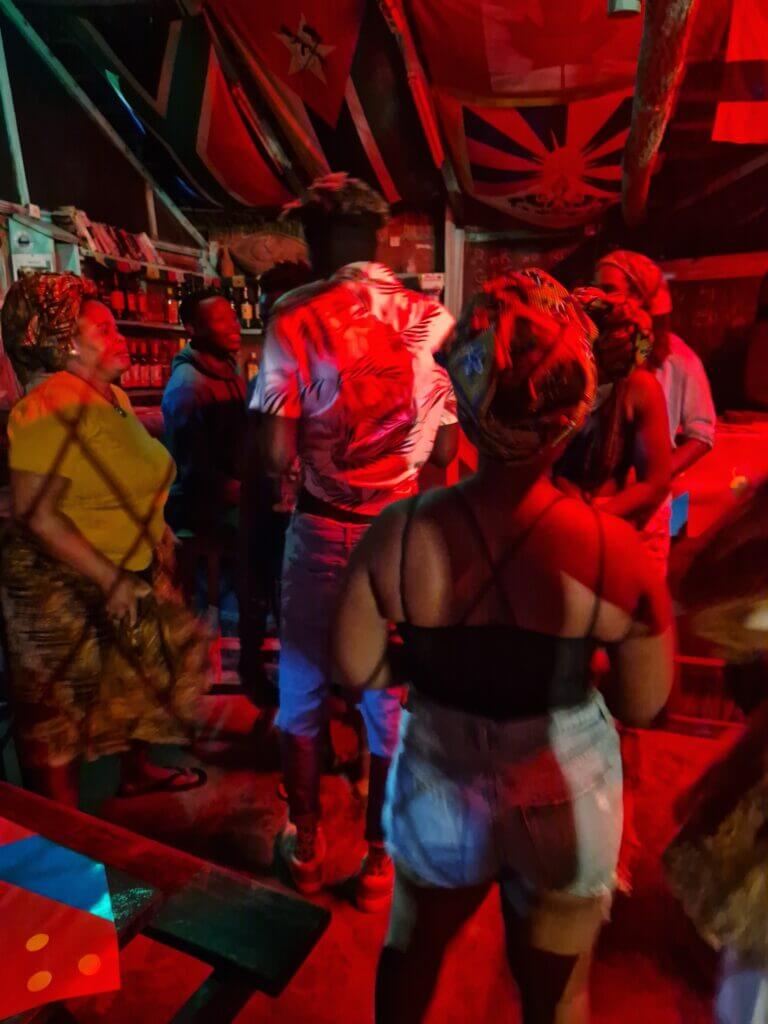
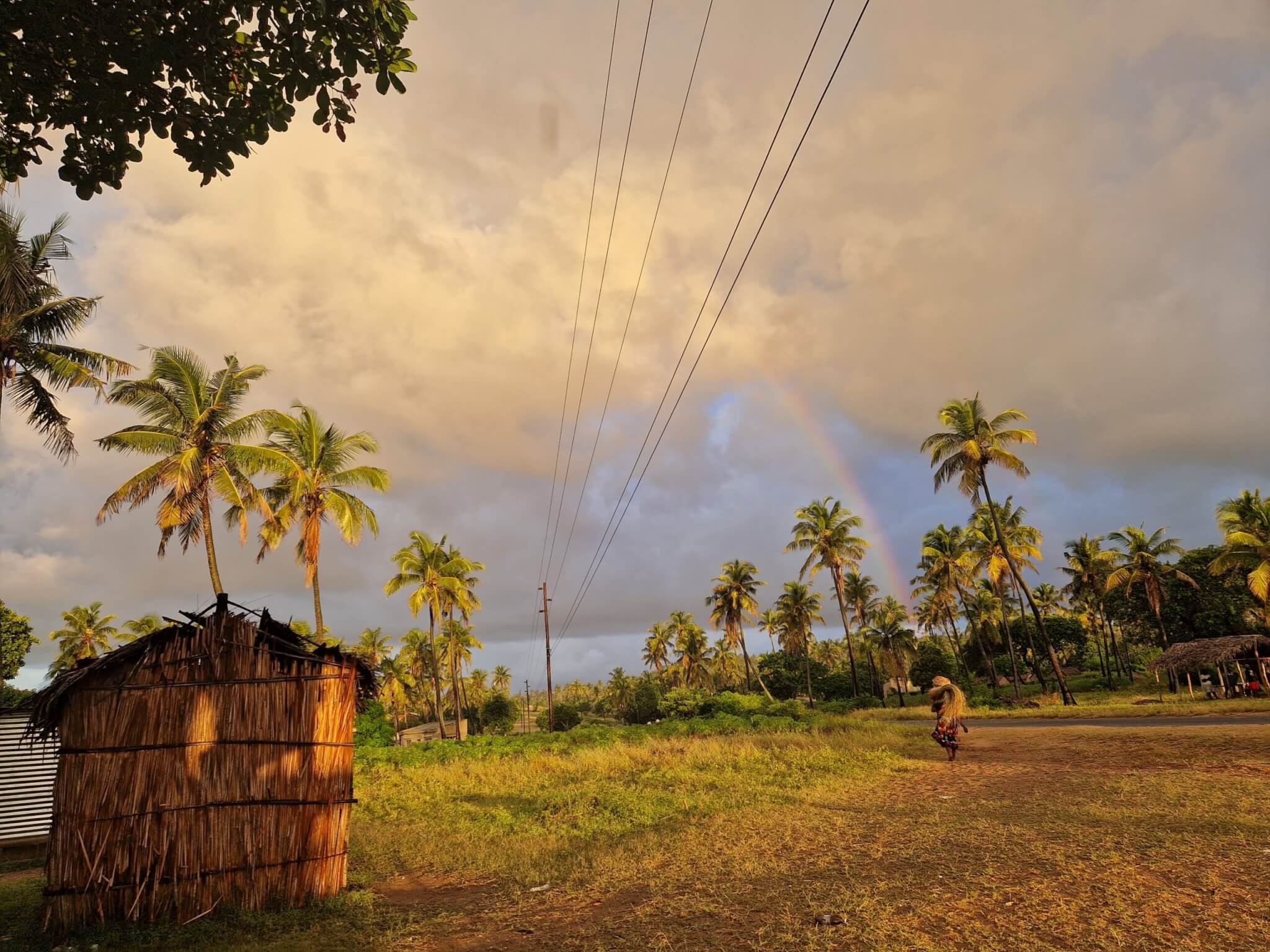
5 thoughts on “Navigating Gender Dynamics: Insights from a Solo Female Traveler in Southern Africa ”
Wow! This is deep, I’m sorry for what you went through, makes one wonder about safety and solo traveling for women.
Thank you Tawanda! Luckily, this is not all solo traveling entails for us women <3 will be writing all about that soon!
What’s up every one, here every one is sharing these experience,
so it’s fastidious to read this blog, and I used to go to see
this blog daily.
With havin so much content do you ever run into any issues of
plagorism or copyright infringement? My site has a lot of
unique content I’ve either written myself or outsourced but it appears a lot of it is popping it up all over the web without my authorization. Do you know any ways to help stop content from being ripped off?
I’d really appreciate it.
I am sorry to hear that!